#Raymond Laval
Text

Lloyd Knight, Raymond Laval, and Richard Villaverde - photo by Luigi and Iango
#Lloyd Knight#Raymond Laval#Richard Villaverde#bailarín#danseur#dancer#ballerino#tänzer#boys of ballet#ballet men#dance#ballet#Luigi and Iango
65 notes
·
View notes
Text
Each stories or novels in the world aren’t interesting without cunning villain.. And mr.Hunter is one of villain of Faren’s story.

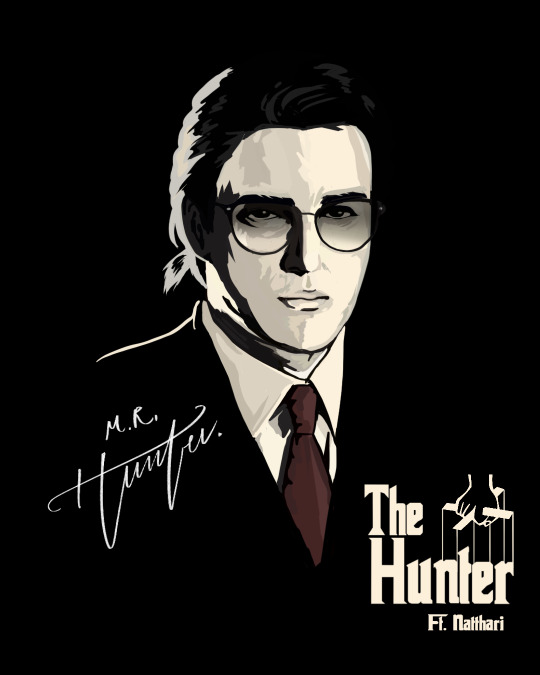
He’s handsome, he’s intelligent, he’s rich, he’s actor and he’s nice to everyone but…he’s villain…
24 years old mr.Hunter and he in ~1988


Name: Giovanni Blake Capone
Nickname: Mr.Hunter/ Ginny/ Curt (Marty said he looks like Curt Smith from Tears for fears)
Date of birth: Jan 13, 1957
Italian- American
Height: 184 cm.
Relatives: Italian-American mafia’s son
Birth place: Corleone, Italy
Residency: Laval, Quebec, Canada
Education: MBA of INSEAD, France
Occupation: CEO of auto parts company/ one of big sponsors of racing car event/ WWF’s business observer
Secret Occupation: Mafia boss/ money laundering/ cocaine godfather of Montreal
Likes: collecting toy cars/ party with rich celebrities/ Elena(Ray’s ex-gf)
Dislikes: Dino Bravo(Business enemy)/ Raymond Rougeau(Heart enemy) and friends, not only French-Canadian wrestler but including Faren/ Mike and Marty as well (but not in high level like Dino and Ray) , But his henchman really hate Windham, Mike’s son, he calls “brat from hell” or “Demon family”
Personalities: Polite/ classy/soft spoken/ Intelligent/ Enterprising/ Cruel/ Impulsive/ unapprocigable/ neat freak.
Goal: Ruined some wrestlers’ career over/ married to Elena, Raymond’s ex-girlfriend/ Be politician of Quebec Canada

Another information:1️⃣ He can speaks 4 languages, French/ Italian/ English and German 2️⃣Hunter was actor before/ many actor and actress wants to party with him, He know the way be beloved by many people and kids. But scary things is this type of people is very nice to others except some wrestlers.. 3️⃣mr. Hunter is sharpshooter, his fav weapon is Remington model 870 gun 4️⃣ Mr.Hunter’s eyes are sensitivity to light, that’s why he often wear glasses
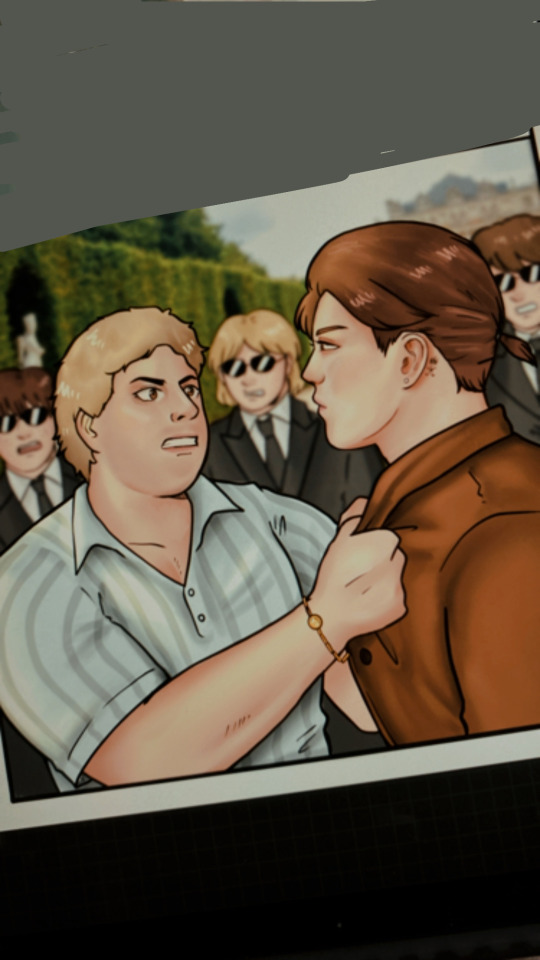
In Faren’s story, Marty gossip that Hunter without black glasses is looks like Curt Smith from Tears for fears💀💀
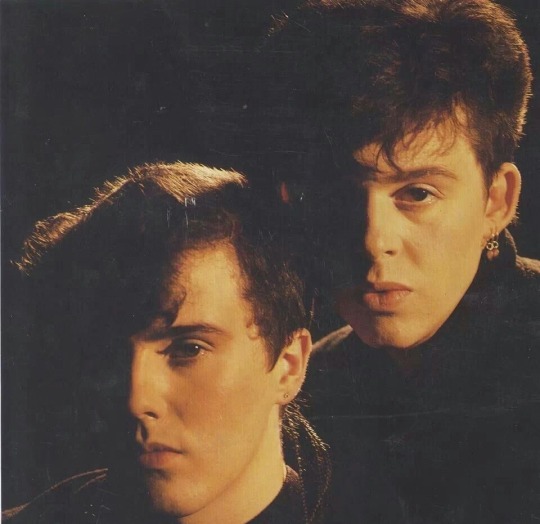
1 note
·
View note
Text
Dès le 7 octobre, une nouvelle exposition au 1700 La Poste: Raymonde April | Traversée

Le 1700 La Poste a le plaisir de présenter une exposition consacrée à la photographe Raymonde April dès le 7 octobre. Articulée autour de la notion de traversée, l’exposition réunit plus d’une centaine de photographies retraçant le parcours de l’artiste entre 1974 et 2022. Ce thème porteur se déploie selon trois axes : la temporalité, l’espace géographique ainsi que le regard porté sur l’autre et sur soi-même. Au fil des substantielles archives de Raymonde April, dont elle extrait des ensembles d’œuvres inédites, son approche cumulative et intuitive se révèle.
« Son travail est autobiographique dans la façon d’aborder les prises de vue. Un naturel et une pudeur caractérisent l’intimité qui se dégage de ses œuvres et en font valoir toute la sincérité. Chaque image laisse deviner une histoire sous-jacente qui la concerne dans son quotidien. Elle développe alors un vocabulaire pictural qui se déploie dans la juxtaposition des photos, formulant une narration poétique sans toutefois construire un récit explicite ou documentaire. » Extrait du texte Traversée par Isabelle de Mévius
Un catalogue préfacé par Isabelle de Mévius réunit un texte littéraire de Charles Guilbert et un essai théorique et philosophique de Gwynne Fulton. Un court documentaire sur l’artiste, réalisé par Bruno Boulianne, est présenté pendant l’exposition.
L’artiste Née à Moncton en 1953, Raymonde April a grandi à Rivière-du-Loup. Photographe et artiste impliquée dans son milieu, elle cofonde La Chambre blanche en 1978 à Québec, l’un des premiers centres d’artistes autogérés au Canada. En 1981, elle s’installe à Montréal, où elle enseigne la photographie à l’Université Concordia de 1986 à 2019. Nommée officière de l’Ordre du Canada en 2010, elle est également lauréate du prix du Québec Paul-Émile-Borduas (2003) et du prix Paul-de-Hueck-et-Norman-Walford de réalisation professionnelle en photographie artistique (2005). À une époque où la photographie est pratiquée au Québec dans une perspective plus souvent documentaire qu’artistique, Raymonde April développe sa démarche de manière autonome, lors de ses études en arts visuels à l’Université Laval, influencée par la littérature et le cinéma. Elle est reconnue depuis la fin des années 1970 pour sa pratique minimaliste inspirée du quotidien, au confluent du documentaire, de l’autobiographie et de la fiction. Ses méthodes et objets d’étude sont définis par une approche cumulative, intuitive et précise. Dans les photographies de Raymonde April, des sujets qui l’entourent et des moments de la vie de tous les jours sont captés, transformés et magnifiés par une utilisation raffinée des qualités formelles de l’image photographique. Travaillant en noir et blanc depuis ses débuts, elle intègre aussi, vers 1999, la photographie couleur et numérique, le film 16 mm, la vidéo et le son, et continue, jusqu’à ce jour, à revisiter ses archives pour y explorer les notions d’intimité, de mémoire, de narration et de fragmentation.
Depuis plus d’une quarantaine d’années, Raymonde April a présenté son travail lors de nombreuses expositions individuelles et collectives au Québec et à l’étranger. Parmi ses expositions solos récentes, il y a notamment la double exposition Near You No Cold, présentée à la Galerie Donald Browne et au Centre Clark (Montréal, 2015); Raymonde April : la maison où j’ai grandi au Musée du Bas-Saint-Laurent (Rivière-du-Loup, 2013) et Équivalences lors du FOCUS Photography Festival en Inde (Mumbai, 2013). Elle a également conçu et réalisé des expositions collectives avec les membres du groupe Outre-vie/Afterlife, un projet qu’elle a initié en 2013. Les écrits de l’artiste se retrouvent dans plusieurs publications d’art, telles que Réservoirs soupirs (VU, 1993), L’eau renversée (Dazibao, 2002) et Soleils couchants (J’ai VU, 2004). Son travail a aussi fait l’objet de divers ouvrages, outre les catalogues de ses expositions. Raymonde April a également réalisé des œuvres filmiques, dont Tout embrasser, présentée au Festival du nouveau cinéma et des nouveaux médias (2000). Ses œuvres figurent au sein des principales collections publiques canadiennes et de nombreuses collections privées.
0 notes
Text


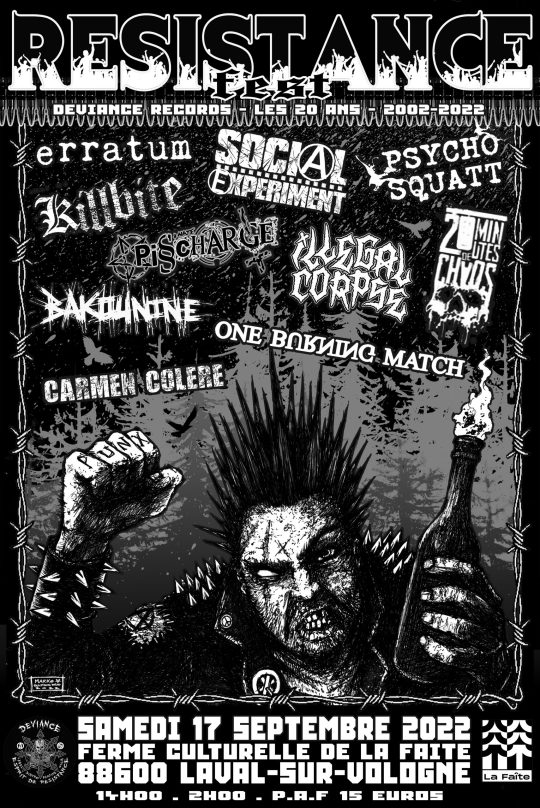
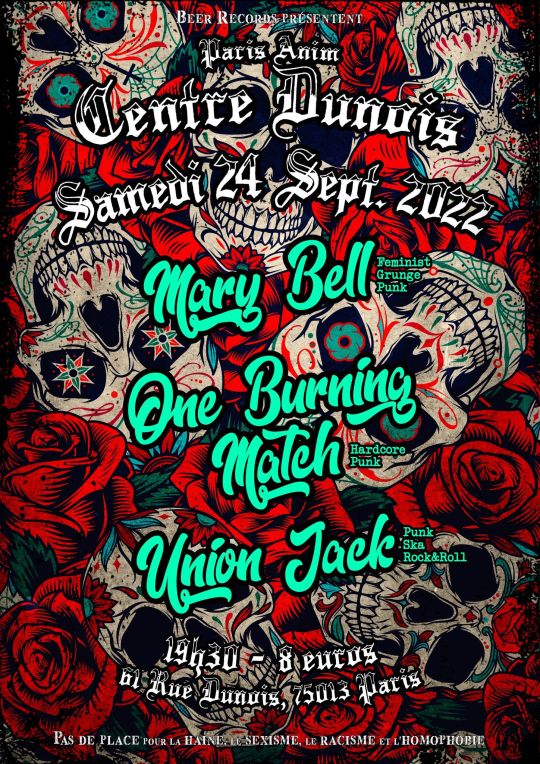
Salut là dedans,
Le Revenge Tour se terminera avec les 4 dernières dates ci dessous.
Ce seront les dernières occasions de se voir pour cette fin d'année. Après ces concerts, on fera une pause pour composer de nouvelles chansons.
🔥 On compte sur vous pour foutre le feu avec nous 🔥
--------------------------------------------
⚡️ Vendredi 02 09 22 : Les orageuses sessions IV / Raymond Bar - Clermont Fd avec Krav boca + Shinken
👉 infos : Les orageuses sessions IV - Vendredi 02 et Samedi 03 Septembre - Raymond Bar
⚔️ Vendredi 16 09 22 : au Art Brothers / Moulins avec Foxhole
⚔️ Samedi 17 09 22 : Resistance Fest - Anniversaire des 20 ans de Deviance Records avec plein de groupes du label - à La Faïte / Laval sur Vologne
👉 infos : RESISTANCE FEST - 20 ans DEVIANCE Rds
⚔️ Samedi 24 09 22 : au Club Dunois - Paris avec Union Jack + Mary bell
👉 infos : Mary Bell + One Burning Match + Union Jack
0 notes
Text
Book: The great hours of cycling in the Dordogne in the first half of the twentieth century
Book: The great hours of cycling in the Dordogne in the first half of the twentieth century
19/07/2022 | Cycling enthusiasts and cyclists, Huguette and Raymond Roucheyrolle publish their latest work “The Great Hours of Cycling in the Dordogne -1919 1945”
Their names were Jean Mouveroux, Raphaël Calmette and Lucien Laval. The Dordogne considered them heroes. Because they were the first Périgourdins to finish the Tour de France. We are in the year 1928: the bicycles are fixed gear with…

View On WordPress
0 notes
Photo

FRANCE. Franche-Comté region. Doubs department. Laval-le-Prieuré. by Raymond Depardon
4 notes
·
View notes
Photo










Movie gifset ‣ Les Profs
Alors aujourd'hui, on invente un exercice... on le fait... on le corrige... Tout seul et en silence. Vous avez 45 minutes. C’est parti.
#les profs#kev adams#pierre françois martin-laval#isabelle nanty#christian clavier#françois morel#stéfi celma#arnaud ducret#raymond bouchard#philippe duclos#eric naggar#film#français#gifset#crumble#movie gifset#mine:movies
7 notes
·
View notes
Text

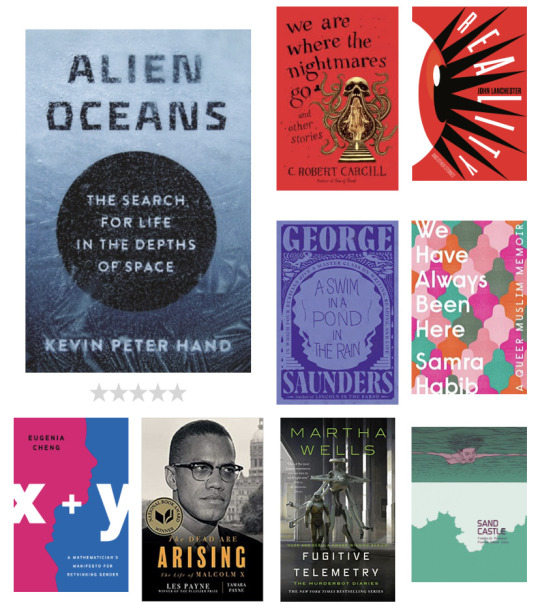

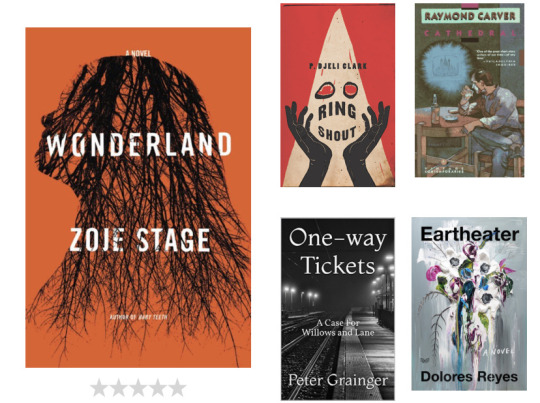
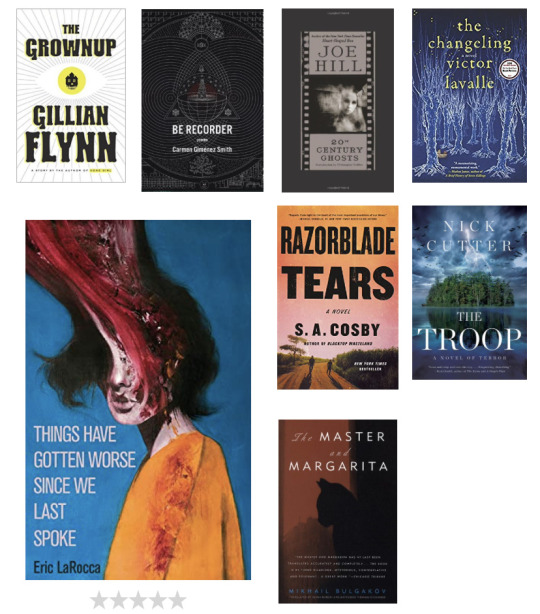
Books I Read in 2021
I’ve been drinking wine and playing video games all evening, but I feel like writing about some of the books I read this year so here we go.
My Favorites, In No Particular Order:
Klara and the Sun (Kazuo Ishiguro) - I KNEW this book was going to be sad, but damn it really stuck with me for weeks after I finished it.
The Changeling (Victor Lavalle) - Completely subverted my expectations and morphed into a beautiful story of the tribulations of fatherhood set against an urban fantasy backdrop that was absolutely *chef’s kiss*
Ring Shout (P. Djeli Clark) - Absolutely slapped from start to finish. Another urban fantasy, which is usually not a fave genre of mine, but I will definitely be reading Clark’s other works in 2022.
Razorblade Tears (S.A. Cosby) - A mystery-thriller/page-turner of a novel with lovingly constructed Southern characters and TONS of thrills and crime.
Eartheater (Dolores Reyes) - Mostly a coming-of-age tale with some gorgeous supernatural/fantasy elements. This is Reyes’ first novel, so I can’t wait to see what she writes next.
Other Notables:
The Dead Are Arising (Les Payne) - Fascinating biography of Malcolm X, and a time capsule of race and racism in America from the 30s-60s. This was by far the longest book I read this year at over 600 pages, but it never dragged for a second.
Willows and Lane Series (Peter Grainger) - @archetypewriter recommended this author to me, so I started with the shorter series. I really like Grainger’s style, so I’ll definitely start the DC Smith series next year.
Cathedral (Raymond Carver) - I’ve avoided Carver for a long time, if only because I feel like I’ve read enough fiction by white men to last me several lifetimes, but ugh! Carver really is a master of the short story form.
A Swim in a Pond in the Rain (George Saunders) - Speaking of short stories and white men, this was an excellent “college course” on how to write short stories, and what makes a short story well-written and worth reading.
Classics Corner:
Blood Child (Octavia Butler) - An absolute queen of science fiction. It was difficult to believe some of her stories were written decades ago because they felt so fresh and ahead of their time even now.
The Master and Margarita (Mikhail Bulgakov) - I am angry about how good this was! An absolute classic and probably one of the best novels ever written, but still so breathtakingly funny and enjoyable to read unlike most “literary” fiction. There is also a talking cat in this book!
Booktok Overhyped This: Tender is the Flesh ( Augustina Bazterrica). Look. Cannibalism is bad obv and so is mass-scale meat production, but this book wasn’t as shocking/scandalous as Tiktok led me to believe. In terms of cannibal books I read this year, I liked The Hunger more.
Booktok Scarred Me for Life: The Troop (Nick Cutter). This book was disgusting in the most horrific way possible. If you think parasites are gross, DO NOT READ THIS BOOK. If you’re into body horror, this might be for you.
And the Rest: Blindness, Mexican Gothic, Black Buck, and Afterparties were all worth a read too!
I didn’t hit my goal of reading 45 book this year but it’s fine! Maybe I will next year!
Happy New Year, everyone!
#books i read#book reccs#2021 in books#klara and the sun#ring shout#the changeling#eartheater#razorblade tears
27 notes
·
View notes
Photo



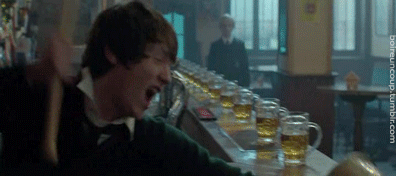


#gif#alcool#cinéma#les profs 2#les profs#pierre-françois martin-laval#2015#stefi celma#raymond bouchard#kev adams#vin#wine#vodka#bière#beer
1 note
·
View note
Text
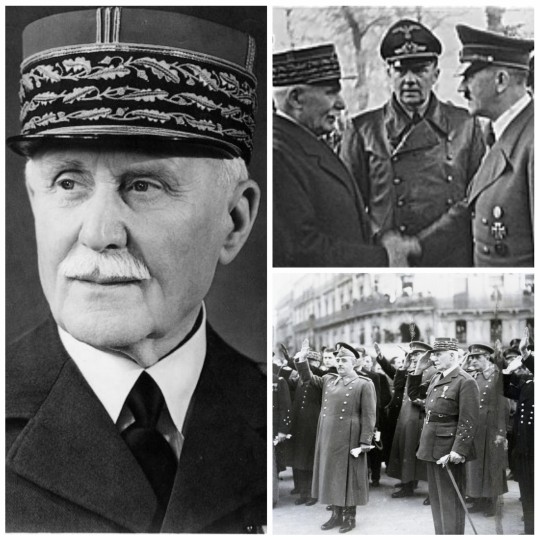
• Philippe Pétain
Henri Philippe Benoni Omer Pétain generally known as Philippe Pétain or Marshal Pétain, was a French general officer who attained the position of Marshal of France at the end of World War I, during which he became known as Le Lion de Verdun (The Lion of Verdun). In collaboration with Nazi Germany, he then served as the Chief of State of Vichy France from 1940 to 1944.
Pétain was born in Cauchy-à-la-Tour (in the Pas-de-Calais département in Northern France) in 1856. His great-uncle, a Catholic priest, Father Abbe Lefebvre (1771-1866), had served in Napoleon's Grande Armée and told the young Philippe tales of war and adventure of his campaigns from the peninsulas of Italy to the Alps in Switzerland. Highly impressed by the tales told by his uncle, his destiny was from then on determined by the army. After World War I Pétain married his former girlfriend, Eugénie Hardon (1877–1962), on September 14th, 1920; they remained married until the end of Pétain's life. Pétain joined the French Army in 1876 and attended the St Cyr Military Academy in 1887 and the École Supérieure de Guerre (army war college) in Paris. Between 1878 and 1899, he served in various garrisons with different battalions of the Chasseurs à pied, the elite light infantry of the French Army.
Pétain's career progressed slowly, as he rejected the French Army philosophy of the furious infantry assault, arguing instead that "firepower kills". His views were later proved to be correct during the First World War. He was promoted to captain in 1890 and major in 1900. Unlike many French officers, he served mainly in mainland France, never French Indochina or any of the African colonies, although he participated in the Rif campaign in Morocco. Pétain would never receive the rank of general as by the time of 1914 he was already nearing retirement age. Pétain led his brigade at the Battle of Guise. At the end of August 1914 he was quickly promoted to brigadier-general and given command of the 6th Division in time for the First Battle of the Marne. Pétain commanded the Second Army at the start of the Battle of Verdun in February 1916. During the battle, he was promoted to Commander of Army Group Centre, which contained a total of 52 divisions. Because of his high prestige as a soldier's soldier and success in combat, Pétain served briefly as Army Chief of Staff ,from the end of April 1917. After the war ended Pétain was made Marshal of France on November 21st, 1918.
Pétain ended the war regarded "without a doubt, the most accomplished defensive tactician of any army" and "one of France's greatest military heroes" and was presented with his baton of Marshal of France at a public ceremony at Metz by President Raymond Poincaré in December 1918. He was summoned to be present at the signing of the Treaty of Versailles on June 28th, 1919. His job as Commander-in-Chief came to an end with peace and demobilisation. in January 1920, was appointed Vice-Chairman of the revived Conseil supérieur de la Guerre (Supreme War Council). This was France's highest military position. Shortly after the war, Pétain had placed before the government plans for a large tank and air force but "at the meeting of the Conseil supérieur de la Défense Nationale in March 1920 the Finance Minister, François-Marsal, announced that although Pétain's proposals were excellent they were unaffordable". In 1928 Pétain had supported the creation of an independent air force removed from the control of the army, and on February 9th,1931, following his retirement as Vice-Chairman of the Supreme War Council, he was appointed Inspector-General of Air Defence.
Political unease was sweeping the country, and on February 6th, 1934 the Paris police fired on a group of far-right rioters outside the Chamber of Deputies. Pétain was invited, on February 8th, to join the new French cabinet as Minister of War, which he only reluctantly accepted after many representations. He improved the recruitment programme for specialists, and lengthened the training period by reducing leave entitlements. Some argue that Pétain, as France's most senior soldier after Foch's death, should bear some responsibility for the poor state of French weaponry preparation before World War II. But Pétain was only one of many military and other men on a very large committee responsible for national defence, and interwar governments frequently cut military budgets. Pétain had been made, briefly, Minister of War in 1934. Yet his short period of total responsibility could not reverse 15 years of inactivity and constant cutbacks.
In March 1939 Pétain became the French ambassador to Spain. When World War II began in September, Pétain turned down an offer of a position in the French government. However on May 18th, 1940, after Germany invaded France, Pétain joined the new government of Paul Reynaud. Reynaud hoped that the hero of Verdun might instill a renewed spirit of resistance and patriotism in the French Army. On May 26th, the invading Germans pushed back the French Army. General Maxime Weygand expressed his fury at British retreats and the unfulfilled promise of British fighter aircraft. He and Pétain regarded the military situation as hopeless. On June 5th, following the fall of Dunkirk, there was a Cabinet reshuffle, and Prime Minister Reynaud brought the newly promoted Brigadier-General de Gaulle. On June 10th, 1940, the government left Paris for Tours. Weygand, the Commander -in -Chief, now declared that "the fighting had become meaningless". He, Baudouin, and several members of the government were already set on an armistice.
Upon learning of France's surrender, the British prime minister Churchill told the French they should consider "guerrilla warfare". Pétain then replied that it would mean the destruction of the country. On June 12th, after a second session of the conference, the cabinet met and Weygand again called for an armistice. He referred to the danger of military and civil disorder and the possibility of a Communist uprising in Paris. Pétain and Minister of Information Prouvost urged the cabinet to hear Weygand out because "he was the only one really to know what was happening". Pétain strongly supported Weygand’s demand for an armistice and read out a draft proposal to the cabinet where he spoke of "the need to stay in France, to prepare a national revival, and to share the sufferings of our people". The government moved to Bordeaux, where French governments had fled German invasions in 1870 and 1914, on June 14th. Parliament, both senate and chamber, were also at Bordeaux and immersed themselves in the armistice debate. Reynaud declared his resignation as Prime Minister on June 16th, and felt he had little choice but to appoint Pétain in his place.
A new Cabinet with Pétain as head of government was formed. General de Gaulle, no longer in the Cabinet, had arrived in London on the 17th and made a call for resistance from there, on the 18th, with no legal authority whatsoever from his government, a call that was heeded by comparatively few. Cabinet and Parliament still argued between themselves on the question of whether or not to retreat to North Africa. On June 22nd, France signed an armistice at Compiègne with Germany that gave Germany control over the north and west of the country, including Paris and all of the Atlantic coastline, but left the rest, around two-fifths of France's prewar territory, unoccupied. Paris remained the de jure capital. On June 29th, the French Government moved to Clermont-Ferrand. The Chamber of Deputies and Senate, meeting together as a "Congrès", held an emergency meeting on July 10th, to ratify the armistice. The new Vichy government immediately used its new powers to order harsh measures, including the dismissal of republican civil servants, the installation of exceptional jurisdictions, the proclamation of antisemitic laws, and the imprisonment of opponents and foreign refugees. Censorship was imposed, and freedom of expression and thought were effectively abolished with the reinstatement of the crime of "felony of opinion."
Pétain championed a rural, Catholic France that spurned internationalism. As a retired military commander, he ran the country on military lines. He and his government collaborated with Germany in the years after the armistice. Pétain's government was nevertheless internationally recognised, notably by the U.S., at least until the German occupation of the rest of France. Neither Pétain nor his successive deputies, Laval, Pierre-Étienne Flandin, or Admiral François Darlan, gave significant resistance to requests by the Germans to indirectly aid the Axis Powers. However, when Hitler met Pétain at Montoire in October 1940 to discuss the French government's role in the new European Order, the Marshal "listened to Hitler in silence. Not once did he offer a sympathetic word for Germany." French government became increasingly fearful of the British and took the initiative to collaborate with the occupiers. Pétain accepted the government's creation of a collaborationist armed militia (the Milice) under the command of Joseph Darnand, who, along with German forces, led a campaign of repression against the French resistance. Pétain's government acquiesced to the Axis forces demands for large supplies of manufactured goods and foodstuffs, and also ordered French troops in France's colonial empire (in Dakar, Syria, Madagascar, Oran and Morocco) to defend sovereign French territory against any aggressors, Allied or otherwise.
On November 11th, 1942, German forces invaded the unoccupied zone of Southern France in response to the Allies' Operation Torch landings in North Africa. Although the French government nominally remained in existence, civilian administration of almost all France being under it, Pétain became nothing more than a figurehead, as the Germans had negated the pretence of an "independent" government at Vichy. Pétain however remained popular and engaged in a series of visits around France as late as 1944. Following the liberation of France, in September 1944 Pétain and other members of the French cabinet at Vichy were relocated by the Germans to the Sigmaringen enclave in Germany, where they became a government-in-exile until April 1945. Pétain, however, having been forced to leave France, refused to participate in this government. On April 5th, 1945, Pétain wrote a note to Hitler expressing his wish to return to France. No reply ever came. However, on his birthday almost three weeks later, he was taken to the Swiss border. Two days later he crossed the French frontier.
The provisional government, headed by De Gaulle, placed Pétain on trial for treason, which took place from July to August 1945. Dressed in the uniform of a Marshal of France, Pétain remained silent through most of the proceedings. De Gaulle himself later criticised the trial, stating, "Too often, the discussions took on the appearance of a partisan trial, sometimes even a settling of accounts, when the whole affair should have been treated only from the standpoint of national defence and independence." De Gaulle himself later criticised the trial, stating, "Too often, the discussions took on the appearance of a partisan trial, sometimes even a settling of accounts, when the whole affair should have been treated only from the standpoint of national defence and independence." After his conviction, the Court stripped Pétain of all military ranks and honours save for the one distinction of Marshal of France. Over the following years Pétain's lawyers and many foreign governments and dignitaries, including Queen Mary and the Duke of Windsor, appealed to successive French governments for Pétain's release, but given the unstable state of Fourth Republic politics no government was willing to risk unpopularity by releasing him. Although Pétain had still been in good health for his age at the time of his imprisonment, by late 1947 his memory lapses were worsening and he was beginning to suffer from incontinence, sometimes soiling himself in front of visitors and sometimes no longer recognising his wife. By May, Pétain required constant nursing care, and he was often suffering from hallucinations, e.g. that he was commanding armies in battle, or that naked women were dancing around his room. By the end of 1949, Pétain was completely senile.
On June 8th, 1951 President Auriol, informed that Pétain had little longer to live, commuted his sentence to confinement in hospital. Pétain died in a private home in Port-Joinville on the Île d'Yeu on July 23rd, 1951, at the age of 95. His sometime protégé Charles de Gaulle later wrote that Pétain’s life was "successively banal, then glorious, then deplorable, but never mediocre".
#second world war#world war 2#history#world war ii#french history#long post#political history#military history#vichy france#biography
14 notes
·
View notes
Photo

I introduced Rays Raymond to the delicious ice cream at @cremerie.pineault. Mixed with blueberries and raspberries. Yum. #glace #icecream #laval https://ift.tt/2YFna1K
1 note
·
View note
Photo
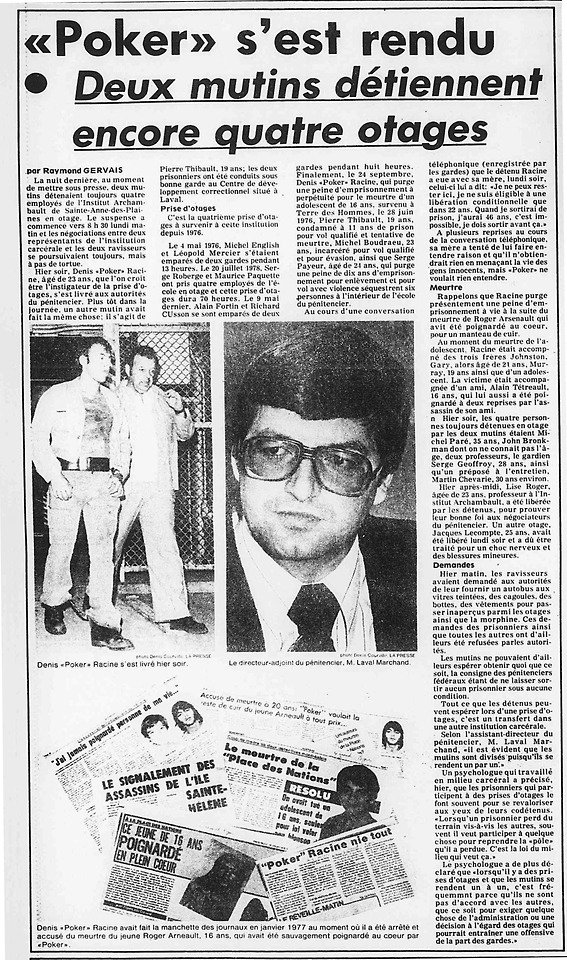
“«Poker» s’est rendu • Deux mutins détienne encore quatre otages,” La Presse. September 26, 1979. Page 22.
---
par Raymond GERVAIS
---
La nuit dernière, au moment de mettre sous presse, deux mutins détenaient toujours quatre employés de l’Institut Archambault de Sainte-Anne-des-Plainés en otage . Le suspense a commence vers 8h30 lundi matin et les négociations entre deux représentants de l’institution carcérale et les deux ravisseurs se poursuivaient toujours, mais à pas de tortue.
Hier soir, Denis «Poker» Racine, âgé de 23 ans, que l’on croit être l’instigateur de la prise d’otages, s’est livré aux autorités du pénitencier. Plus tôt dans la journée, un autre mutin avait fait la même chose: il s’agit de Pierre Thibault, 19 ans; les deux prisonniers ont été conduits sous bonne garde au Centre de développement correctional situé à Laval.
Prise d’otages
C'est la quatrième prise d'otages à survenir à cette institution depuis 1976.
Le 4 mai 1976, Michel English et Léopold Mercier s’étaient emparés de deux gardes pendant 13 heures. L e 20 juillet 1978, Serge Roberge et Maurice Paquette ont pris quatre employés de l’école en otage et cette prise d’otages dura 70 heures. Le 9 mai dernier, Alain Fortin et Richard Cusson se sont emparés de deux gardes pendant huit heures. Finalement, le 24 septembre, Denis «Poker» Racine, qui purge une peine d’emprissonment à perpétuité pour le meurtre d’un adolescent de 16 ans, survenu à Terre des Hommes, le 28 juin 1976, Pierre Thibault, 19 ans, condamné à 11 ans de prison pour vol qualifié et tentative de meurtre, Michel Boudreau, 23 ans, incarcéré pour vol qualifié et pour évasion, ainsi que Serge Payeur, âgé de 24 ans, qui purge une peine de dix ans d’emprisonnement pour enlèvement et pour vol avec violence séquestrent six personnes à l’intérieur de l’école du pénitencier.
Au cours d’une conversation téléphonique (enregistré par les gardes) que le détenu Racine a eue avec sa mère, lundi soir, celui-ci lui a dit: «Je ne peux rester ici, je ne suis éligible à une libération conditionnell que dans 22 ans. Quand je sortirai de prison, j’aurai 40 ans, c’est im possible, je dois sortir avant ça.» A plusieurs reprises au cours de la conversation téléphonique, sa mère a tenté de lui faire entendre raison et qu’il n’obtiendrait rien en menaçant la vie des gens innocents, mais «Poker» ne voulait rien entendre.
Meurtre
Rappelons que Racine purge présentementune peine d’emprisonnement à vie à la suite du meurtre de Roger Arsenault qui avit été poignardé au coeur, pour un manteau de cuir. Au moment du meurtre de l’adolescent, Racine était accompné des trois freres Johnston, Gary, alors âgé de 21 ans, Murray, 19 ans ainsi que d’un adolescent. La victime était accompagnée d’un ami, Alain Tétreault, 16 ans, qui lui aussi a été poignardé à deux reprises par l’assassin de son ami.
Hier soir, les quatre personnes toujours détenues en otage par les deux mutins étaient Michel Paré, 35 ans, John Bronkman dont on ne connaît pas l’âge, deux professeurs, le gardien Serge Geoffroy, 28 ans, ainsi qu'un préposé à l’entretien, Martin Chevarie, 30 ans environ.
Hier après-midi, Lise Roger, âgée de 23 ans, professeur à l’Institut Archambault, a été libérée par les détenus, pour prouver leur bonne foi aux négociateurs du pénitencier. Un autre otage, Jacques Lecompte, 25 ans, avait été libéré lundi soir et a dû être traité pour un choc nerveux et des blessures mineures.
Demandes
Hier matin, les ravisseurs avaient demandé aux autorités de leur fournir un autobus aux vitres teintées, des cagoules, des bottes, des vêtements pour passer inaperçus parmi les otages ainsi que la morphine. Ces demandes des prisonniers ainsi que toutes les autres ont d’ailleurs été refusées parles autorités.
Les mutins ne pouvaient d’ailleurs espérer obtenir quoi que ce soit, la consigne des pénitenciers fédéraux étant de ne laisser sortir aucun prisonnier sous aucune condition.
Tout ce que les détenus peuvent espérer lors d’une prise d’otages, c’est un transfert dans une autre institution carcérale.
Selon l’assistant-directeur du pénitencier, M. Laval Marchand, «il est évident que les mutins sont divisés puisqu’ils se rendent un par un.»
Un psychologue qui travaillé en milieu carcéral a précisé, hier, que les prisonniers qui participent à des prises d’otages le font souvent pour se revaloriser aux yeux de leurs co-détenus. «Lors qu’un prisonnier perd du terrain vis-à-vis les autres, souvent il veut participerr à quelque chose pour reprendre la «pôle» qu’il a perdue. C’est la loi du milieu qui veut ça.»
Le psychologue a de plus déclaré que «lors qu’il y a des prises d’otages et que les mutins se rendent un à un, c’est fréquement par ce qu’ils ne sont pas d’accord avec les autres, que ce soit pour exiger quelque chose de l’administration ou une décision à l’égard des otages qui pourra it en traîner une offensive de la part des gardes.»
#archambault institution#maximum security#hostage taking#quebec history#prisoner revolt#prison violence#prison conditions#improvised weapons#lifers#life sentence#murderer#violent robbery#life without parole#young prisoner#correctional development centre#crime and punishment#crime and punishment in canada#history of crime and punishment in canada#canadian penitentiary service#prison guards#poker racine
1 note
·
View note
Text
Peasant Quotes
Popular Topics
Popular Authors
Menu
He is happiest, be he king or peasant, who finds peace in his home.
Johann Wolfgang von Goethe
Peace
Home
King
All men are by nature equal, made all of the same earth by one Workman; and however we deceive ourselves, as dear unto God is the poor peasant as the mighty prince.
Plato
Nature
God
Men
Every marriage tends to consist of an aristocrat and a peasant. Of a teacher and a learner.
John Updike
Teacher
Marriage
Aristocrat
A peasant becomes fond of his pig and is glad to salt away its pork. What is significant, and is so difficult for the urban stranger to understand, is that the two statements are connected by an and not by a but.
John Berger
Difficult
Stranger
Pig
I want there to be no peasant in my kingdom so poor that he cannot have a chicken in his pot every Sunday.
Henry IV
Chicken
Poor
Kingdom
Scratch a Russian, and you'll find a peasant.
Milla Jovovich
Find
Scratch
Russian
They're thinking of turning the peasant into an educated man. Why, first of all they should make him a good and prosperous farmer and then he'll learn all that is necessary for him to know.
Nikolai Gogol
Good
Man
Thinking
I mean, my people were very, very simple. They were peasant people, you know?
James Earl Jones
Simple
People
Know
I believe in reincarnation. In my last life I was a peasant. Next time around, I'd like to be an eagle. Who hasn't dreamed they could fly? They're a protected species, too.
Lee Trevino
Life
Time
Fly
The peasant must always be helped technically, economically, morally and culturally. The guerrilla fighter will be a sort of guiding angel who has fallen into the zone, helping the poor always and bothering the rich as little as possible in the first phases of the war.
Che Guevara
War
Angel
Rich
My wife was the first art collector in the family, and I didn't become interested until around 1973. The first important artwork we bought was a Van Gogh drawing of two peasant houses in Saintes-Maries-de-la-Mer.
Eli Broad
Family
Art
Wife
They eat the dainty food of famous chefs with the same pleasure with which they devour gross peasant dishes, mostly composed of garlic and tomatoes, or fisherman's octopus and shrimps, fried in heavily scented olive oil on a little deserted beach.
Luigi Barzini
Food
Famous
Pleasure
What motivated me? My mother. My mother was an immigrant woman, a peasant woman, struggled all her life, worked in the garment center.
Al Lewis
Life
Mom
Me
I cook a little bit. I make a Hungarian dish called chicken paprikash that's out of this world. I'll give a heads-up to all of your readers that it doesn't have to be between Thai and Mexican every night. Toss some Hungarian in every once in a while. You will not be sorry. Good, solid peasant food.
Adam Carolla
Good
Food
Night
You know most of the food that Americans hold so dear - things like hamburgers and hot dogs - were road food, but even before they were road food, they were peasant food.
Alton Brown
Food
Hot
Road
We must always remember that the Chinese revolution was not a peasant's revolution, but one of the extreme Right.
Salvador Dali
Remember
Always
Revolution
We want to overthrow the imperial power not because it is Manchurian but because we want republicanism... We republican revolutionaries can never have the notion of becoming emperors after the revolution, like all the peasant rebels did in the past.
Sun Yat-sen
Power
Past
Never
There is but one stage for the peasant and the actor.
Henry David Thoreau
Stage
Actor
I don't ever want to be like a peasant. I want to always be all right. But motivation is fans - not your kids, your mum, none of that. All of that matters, but number one is your fans.
Young Thug
Fans
Always
Right
That a peasant may become king does not render the kingdom democratic.
Woodrow Wilson
King
Kingdom
Become
I am an African-American woman of dark skin tone, and there are very specific roles that are usually given to African-American women of a darker hue. Let's start with 'Once on This Island': peasant girl. Let's go to 'The Color Purple': young girl, beaten. Let's go to 'Ragtime': Her baby's taken.
LaChanze
Women
I Am
Skin
The earth is the earth as a peasant sees it, the world is the world as a duchess sees it, and anyway a duchess would be nothing if the earth was not there as the peasant sees it.
Gertrude Stein
World
Earth
Nothing
For an Italian peasant a telegram from anywhere is a wondrous thing; and a cable from the terrestrial paradise of America is not lightly to be disregarded.
Howard K. Smith
Paradise
America
Anywhere
I come from a long line of below-stairs maids and gardeners. Good ol' peasant stock. My mother and her sister made a quantum leap out of that life. Then I made another quantum leap.
Julie Andrews
Life
Good
Long
Remember the valiant Iraqi peasant and how he shot down an American Apache with an old weapon.
Saddam Hussein
Remember
American
Down
I am a peasant from the Auvergne. I want to keep my farm, and I want to keep France. Nothing else matters now.
Pierre Laval
I Am
Nothing
Want
The poor peasant here hives under conditions quite different from those of Russia. Though often terrible, they are not as appalling as they were there.
Herman Gorter
Poor
Russia
Terrible
If ever there was a slamming of the door in the face of constructive investigation, it is the word miracle. To a medieval peasant, a radio would have seemed like a miracle.
Richard Dawkins
Face
Door
Radio
I like army boots, I like peasant skirts - sometimes together! So I do know that I have odd taste.
Mayim Bialik
Together
Sometimes
Know
I like Sicilian food. It's real peasant food.
Raymond Kelly
Food
Real
Like
I do not have voice for Russian music; I cannot be cute little peasant like in operas of Glinka or Rimsky-Korsakov. I am now never in Russia; I am Austrian citizen. But definitely I am Latin!
Anna Netrebko
Music
I Am
Cute
There aren't many great passages written about food, but I love one by George Millar, who worked for the SOE in the second world war and wrote a book called 'Horned Pigeon.' He had been on the run and hadn't eaten for a week, and his description of the cheese fondue he smells in the peasant kitchen of a house in eastern France is unbelievable.
Sebastian Faulks
Love
War
Food
I am for poetry that is admired by peasant and aristocrat alike.
F. Sionil Jose
Poetry
I Am
Aristocrat
To me, the most critical thing in agriculture is investing in the peasant agriculture, transforming peasant agriculture.
Jakaya Kikwete
Me
Agriculture
Critical
The whole world feels that it knows Francis, not so much because he follows Francis of Assisi but because he is always himself. We have seen him pay his own hotel bill and heard that Francis called Buenos Aires for a pair of ordinary black shoes, like John XXIII, who preferred stout peasant shoes to the traditional papal footwear.
Eugene Kennedy
Black
World
Shoes
The Breton peasant is said to have a hard head. He is obstinate and resists outside pressure to alter his creed or his customs.
Sabine Baring-Gould
Pressure
Hard
Outside
I remember I once went to a nutritionist who said I come from good Russian-Jewish peasant stock, which means I can hold a potato in my body for a week, if need be.
Jennifer Jason Leigh
Good
Remember
Body
Border collies predate the British Kennel Club. They've been bred consistently for 100 years. They're the last working dogs in the world, with some minor exceptions. Bench shows, dog shows have ruined the other breeds, like the hunting dogs. Border collies are peasant dogs, and that's protected them.
Donald McCaig
World
Dog
Bench
The knish is a classic example of peasant food evolving into comfort food and even sophisticated fare.
Gil Marks
Food
Comfort
Comfort Food
You go to Europe, and they have their very wealthy elites, and then everybody else is, you know, a couple of steps above a peasant, basically.
Ann Coulter
Know
Go
Europe
There are two classes of women in Soviet Russia. There is the professional class, which has taken the place of the nobility and includes government officials, artists, doctors, composers and writers as well as former members of the old nobility whose sympathy is with the Soviets, and also the peasant class.
Elsa Schiaparelli
Women
Government
Sympathy
Tolstoy didn't know about steampunk or cyborgs, but he did know about the nightmarishness of steam power, unruly machines, and the creepy half-human status of the Russian peasant classes. In 'Anna Karenina,' nineteenth-century life itself is a relentless, relentlessly modern machine, flattening those who oppose it.
Elif Batuman
Life
Power
Know
Most people, throughout history, haven't learned one language to the exclusion of another. You learn to speak differently to a peasant and to a shoemaker. You speak differently to your mother, who comes from Burgundy, and to your father, who comes from Swabia.
1 note
·
View note
Text
Salut là dedans,
𝗢𝗻 𝗿𝗲𝗽𝗮𝗿𝘁 𝘀𝘂𝗿 𝗹𝗲𝘀 𝗿𝗼𝘂𝘁𝗲𝘀 𝗱𝗲 𝗙𝗿𝗮𝗻𝗰𝗲 𝗽𝗼𝘂𝗿 𝗹𝗲 𝘁𝗿𝗼𝗶𝘀𝗶𝗲̀𝗺𝗲 𝗲𝘁 𝗱𝗲𝗿𝗻𝗶𝗲𝗿 𝗥𝗼𝘂𝗻𝗱 𝗱𝘂 𝗥𝗲𝘃𝗲𝗻𝗴𝗲 𝘁𝗼𝘂𝗿.
Si on ne s'est pas encore croiser en concert, ce sera l'occasion de mettre le feu ensemble 💣💥
On se voit là bas.
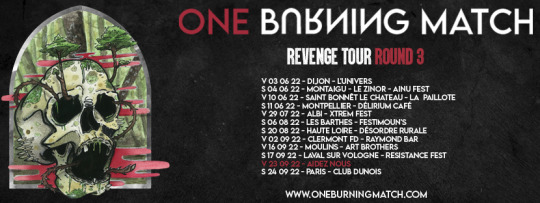
🔥 V 29 07 22 - Albi - Xtrem fest
🔥 S 06 08 22 - Les Barthes - Festimoun’s
🔥 S 20 08 22 - Haute Loire - Désordre Rurale
🔥 V 02 09 22 - Clermont Fd - Raymond bar - Les orageuses sessions IV
🔥 V 16 09 22 - Moulins - Art Brothers
🔥 S 17 09 22 - Laval sur Vologne - Resistance Fest
📢 𝗩 𝟮𝟯 𝟬𝟵 𝟮𝟮 - 𝗮𝗶𝗱𝗲𝘇 𝗻𝗼𝘂𝘀
🔥 S 24 09 22 - Paris - Club Dunois
0 notes
Text
2020-21 Iserlohn Hähne Roster
Wingers
#8 Neal Samanski (Erding, Germany)
#18 Taro Jentzsch (Berlin, Germany)
#19 Julian Lautenschlager (Regensburg, Germany)
#26 Brent Aubin (Sainte-Sophie, Quebec)
#37 Casey Bailey (Anchorage, Alaska)
#82 Alexandre Grenier (Laval, Quebec)
#91 Brody Sutter (Viking, Alberta)
#93 Brent Raedeke (Regina, Saskatchewan)
Centers
#7 Jake Weidner (Grand Valley, Ontario)
#17 Tim Fleischer (Iserlohn, Germany)
#67 Marko Friedrich (Roth, Germany) A
Defensemen
#6 Ryan O’Connor (Hamilton, Ontario)
#12 Daine Todd (Red Deer, Alberta)
#15 Erik Buschmann (Moers, Germany)
#23 Bobby Raymond (Lucknow, Ontario) C
#29 Jens Baxmann (Wernigerode, Germany) A
#62 Dieter Orendorz (Iserlohn, Germany)
#97 Tobias Schmitz (Krefeld, Germany)
Goalies
#20 Jonas Neffin (Iserlohn, Germany)
#30 Janick Schwendener (Davos, Switzerland)
#92 Andreas Jenike (Hamburg, Germany)
#Sports#Hockey#Hockey Goalies#Germany#Celebrities#Switzerland#Canada#Ontario#Alberta#Quebec#Alaska#Saskatchewan
0 notes